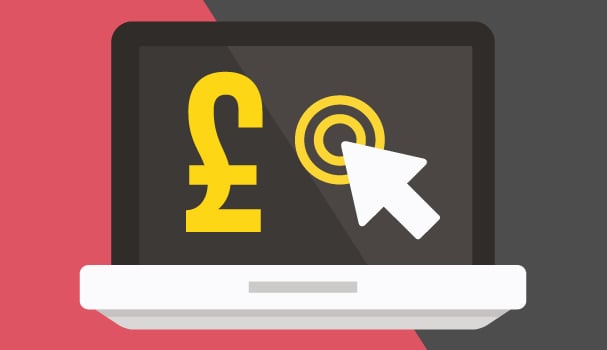Conventional logic maintains things can be done fast or they can be done right and often this means we are encouraged online to sacrifice security for simplicity. Fortunately e-commerce payments platform Klarna is making it easy for online shoppers to have the best of both worlds, enabling secure purchases with a couple of mouse clicks.
Klarna co-founders Niklas Adalberth and Sebastian Siemiatkowski first met at middle school in their home country of Sweden but even back then it was work that truly brought them together. “We started to work part time in Burger King together in eighth grade, that’s when we really got to know each other behind the broiler, flipping patties on the grill,” says Adalberth, who is also the company’s deputy CEO. “There’s not much to do right? So we started talking.” This was the beginning of a fast friendship that saw them embarking on all manner of adventures, including a trip around the world where they eschewed air travel.
It was when the entrepreneurs were 23 that they first started working on the idea that would one day become Klarna. E-commerce was a very well established industry by 2005 but this didn’t mean that the Klarna founders didn’t notice some real pain points in the process of buying online. “First of all you don’t always feel completely safe,” says Adalberth. “What happens if your product doesn’t arrive? What happens if your credit card number gets stolen?” At this time, plenty of people were getting burnt buying through online marketplaces and finding a way of removing the risk seemed a pressing concern.
But it wasn’t just a desire for security that sparked the creation of the Swedish start-up. The entrepreneurs also recognised that simplicity was of increasing importance to painless online shopping and so they made it their priority to find a way to declutter the checkout experience. “It was such a hassle to sort out all the forms and fields,” Adalberth says. And this was becoming an increasing concern as mobile commerce was in its nascence, meaning that filling in pages of information when you wanted to make a purchase was becoming increasingly unfit for purpose. “During this time mobile was just impossible,” he continues. “Trying to pull up your credit card number while on the subway pulling out of the station wasn’t realistic.”
The solution they first hit upon was a novel one. Rather than forcing consumers to submit their payment details there and then, Kreditor – as the service was then known – would sit in between the consumer and e-commerce outlet, using invoicing to take funds at a later date. “We thought ‘why not just use underwriting technology for all purchases so that you as a consumer just get a buy button?’” says Adalberth.
This removes the risk of online shopping for all involved. “We are in the middle, making the transaction 100% safe for both parties,” Adalberth explains. Consumers not only get a simpler shopping experience but they can wait for products to be delivered to ensure that they work and meet with their expectations before issuing payment. Conversely merchants are protected from the risk of defaulted payments as the transaction is guaranteed and underwritten by Klarna. “We assume all risk for the merchant; they get paid no matter what happens,” Adalberth continues. “And as a consumer you don’t need to transfer until 14 days later.”
However the one thing that can’t be ignored in this equation: capital. Underwriting transactions requires a large balance sheet to protect the business from unnecessary risk. Inevitably this meant investment was a necessity for Klarna. This has seen the company draw down some impressive funding rounds: one, in 2010, saw the start-up raise £10m from Sequoia Capital. A subsequent round in 2011 raised a whopping $144m injection for the company’s balance sheet.
Adalberth’s keen to stress this isn’t about shoring up the firms P&L; undoubtedly the firm could have grown without it. “We didn’t need finance in order to make a profitable business because we’ve been profitable since year one,” he says. But any company lending significant amounts of capital is subject to significant regulatory requirements and this means having a hefty buffer to protect against any sudden holes that might appear in the balance sheet. “Since we assume all of this risk, we’re basically working as a bank,” he says. “You need to have equity in the company in order to lend out all this money that we do.”

When the company was only three years old when it began to expand internationally. And this was as much about demand as it was the ambitions of its founders. “We signed the biggest merchant in the entire Nordics: CDON,” Adalberth says. “They covered the entire Nordics and hence we needed to as well. It was very much customer driven.”
It was at this point that the company began to look at a rebrand. Thus far the company had been localising its brand for each region it entered and this began to create something of an identity crisis. “It’s really cool to have a lot brand names; you feel really big and that you’ve created something fantastic,” Adalberth says. “But, on the other hand, to get real consumer penetration it’s super hard.”
It’s something of a truism that when a rock band has to pick a new name typically a titanic struggle ensues; one can certainly say the same of start-ups. “It took two years before we could agree on something that none of the founders disliked,” Adalberth recalls. It was the beginning of an endless round of workshops, company competitions and external consultations. And, as is often the way, the ideal solution was not finding a name that was everyone’s firm favourite but finding one that no one hated. “No one put in a veto for Klarna even though each one of us had other favourite names,” he says. “Now we all really like it.”
The brand name isn’t the only thing that has changed over the years. As Klarna expanded internationally, its portfolio of products has expanded with it. Whilst the company’s e-commerce focus originally just centred on invoicing, it has come to embrace a more variegated approach. “It all transformed into Klarna Checkout,” says Adalberth. The prime focus of Klarna Checkout has been to remove the obstacles that stand in the way of a hassle-free buying experience. “We don’t believe in registration, forms or loads of stuff to fill out,” he continues. “Our focus is on it being ‘two clicks and you’re done’.”
However, while Klarna believes that the checkout process should be simply, it doesn’t have similar illusions about localisation. “No market is the same; payments are local,” Adalberth says. “We cannot just expand by copying the product. We need to make it very localised.” Learning about the market that one is translating an enterprise into is absolutely vital; for example, entering Germany requires knowledge of the eight common payment methods used, as well as the Trusted Shops and TÜV certifications required for trading.
In comparison, entering the UK market has proven relatively simple for Klarna because the portfolio of payment methods used is relatively slim. “In the UK, it’s mainly Visa, Mastercard and American Express; you cover 99% of all the people and they are happy with that,” says Adalberth.
But the opportunities represented by the UK market are immense. Retailers have a real and pressing need to boost conversion rates on their e-commerce platforms and it’s hard to overestimate just how big an impact simplifying the checkout process can make, particularly for smartphone users. “If you look at the conversion rate on smartphones among the top retailers, we’re talking about 3-5%,” Adalberth says. “We take that all the way up to 50% or 60%.” Reducing the checkout process to a few finger taps can massively impact upon the number of consumers who make it through to the end of their purchasing journey.
It’s still early days for Klarna’s role in the UK but Adalberth has high hopes for the impact it will have on British online retail, as well as e-commerce the world over. “I would be really proud when someone can go online and buy a carpet from Pakistan with just a couple of clicks and without risk,” he says. When shoppers can order wares with a couple of clicks without risking exposing their payment details to third parties, he feels it will have a revolutionary effect. “That’s when we can enable really smooth and simple international shopping for real.” ![]()
Share via:








































